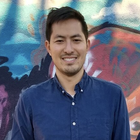
Steven Azeka is program lead for the Responsible Computing Challenge. Additionally, he is a doctoral student in the Instructional Technology and Media program at Teachers College, Columbia University. His profession and research explore the diffusio…

Dr. Ziyaad Bhorat is a South African political theorist focused on AI, global digital governance, and democratic politics. He is the country lead for the Mozilla Foundation’s Responsible Computing Challenge in the US and South Africa. He also holds …
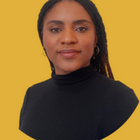
Based in Berlin, Germany, Jaselle is the Program Associate for the Responsible Computing Challenge Team. She recently completed a Master's degree in Politics, Economics, and Philosophy exploring the ways in which responsible technology shapes, and i…
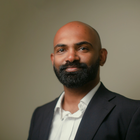
Jibu Elias is a renowned AI ethicist, activist and the leading expert on India’s AI ecosystem. His work currently focuses on building a unified AI ecosystem in India and closing the digital divide created by technologies such as AI.

Crystal Lee is an assistant professor at MIT and a faculty associate at Harvard's Berkman Klein Center, where she works broadly on research related to ethical tech, social media, data visualization, and disability. She also holds a senior fellowship…
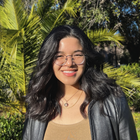
Princess Vongchanh is an undergraduate student at Stanford University and intern for the Responsible Computing Challenge. At Stanford, they study Symbolic Systems with a concentration in designing and developing human-centered AI. They are also high…
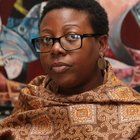
Koliwe is a senior programme officer in the fellowships and awards team at the Moz://a Foundation. She is a seasoned media, information, communications and technologies professional with over 15 years of experience working in civil society, lobbying…
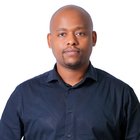
George Murage is a partnerships and business development professional with over 10 years of hands-on knowledge and experience in designing, creating, and deploying solutions for a wide range of clients in the enterprise business ecosystem, digital m…

Kathy Pham currently is the Vice-President of Artificial Intelligence and Machine Learning at Workday. Previously, she was appointed the inaugural Executive Director of the National AI Advisory Committee, led as the Deputy Chief Technologist at the …
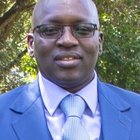
Patrick Kanyi Wamuyu is an Associate Professor of Information Technology at United States International University-Africa, Nairobi, Kenya. Dr. Wamuyu earned his Ph.D. in Information Systems and Technology from the University of KwaZulu-Natal, Durban…

Dr. Vinayak Abrol is a Discovery Track Faculty at the Department of Computer Science and Engineering & Infosys Centre for AI at IIIT Delhi, India. Prior to this, he held an Oxford-Emirates data science fellowship at the Mathematical Institute, Unive…
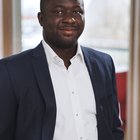
Laud Ammah is a Data Scientist at NXT Boardroom, a next generation business club connecting board members for better business. Laud's career in tech began as a research assistant at Chair of Building Realization and Robotics before joining the Insti…
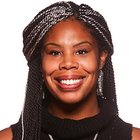
Erica is a Senior Engineering Manager at Patreon. Erica's career in tech began fifteen years ago doing tech support for the University of Alaska before becoming a Googler in 2006. She joined Slack in 2015, and moved on to Patreon in 2017. Erica is a…

Supriya Bhuwalka is the founder of Coding and More, an Edtech startup focused on providing personalized AI and Coding education to students in the K-12 grade band. A staunch supporter of women empowerment, Coding and More is an all women run organiz…
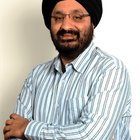
Jaspreet Bindra is the Managing Director and Founder of Tech Whisperer Limited UK, which does Advisory and Consulting work on Digital Transformation AI, Blockchain, and the Future of Work. He also represents Findability Sciences, a Softbank-invested…

Jack Brassil is a Program Director at the National Science Foundation in Alexandria, VA. He oversees programs in computing and networking research infrastructure including Platforms for Advanced Wireless Research, US Ignite Smart Cities, and NSF Fut…

Emanuelle Burton teaches computer science ethics at the University of Illinois at Chicago. She is currently co-authoring a textbook for a science fiction-based CS ethics curriculum, in collaboration with Judy Goldsmith, Nicholas Mattei, Cory Siler a…

Joshua Cohen is a political philosopher, who has written on issues of democracy and global justice. Cohen joined the faculty at Apple University in 2011, and is also currently a Distinguished Senior Fellow at Berkeley, in the School of Law, the Depa…
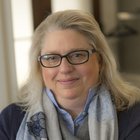
Dr Stacy A. Doore is the Clare Boothe Luce Assistant Professor of Computer Science at Colby College in Waterville, Maine. She received her Ph.D. in Spatial Information Science and Engineering at the University of Maine in 2017. She is a co-creator o…
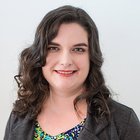
Alexis Elder is an assistant professor of philosophy at the University of Minnesota Duluth. Her research and teaching interests involve the intersection of ethics, emerging technologies, and moral psychology. She tends to draw on ancient philosophy …

Edward W. Felten is the Robert E. Kahn Professor of Computer Science and Public Affairs at Princeton University, and the founding Director of Princeton's Center for Information Technology Policy. In 2015-2017 he served in the White House as Deputy U…
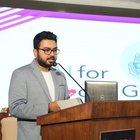
Priyanjit is the Co-founder and CEO of Logy.AI, an AI-based digital health platform that enables early health screening and care coordination. He leads the business, strategy, and AI consulting functions of the company, which he started in 2019 from…
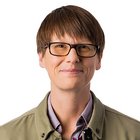
Mary L. Gray is a Senior Researcher at Microsoft Research, Fellow at Harvard University’s Berkman Klein Center for Internet and Society, and Associate Professor in the School of Informatics, Computing, and Engineering with affiliations in Anthropolo…

Graham Ingokho is a chemical engineer by training and self taught software engineer. He works with the marketing team at Africastalking.com and is a mentor for the Google for Startups Accelerator Africa initiative - a three-month virtual accelerator…

Jofish Kaye is Principal Research Scientist at Mozilla in the Emerging Technologies team. His research explores the social, cultural, and technological effects of technology on people, and how people’s decisions, needs, and behaviors can change and …
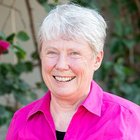
Maria Klawe became Harvey Mudd College’s fifth president in 2006. Prior to joining HMC, she served as dean of engineering and professor of computer science at Princeton University. Klawe joined Princeton from the University of British Columbia where…

Ed Lazowska holds the Bill & Melinda Gates Chair in the Paul G. Allen School of Computer Science & Engineering at the University of Washington. From 2008-17 he served as the Founding Director of the University of Washington eScience Institute, where…

Janet Leparteleg is passionate about technology and women empowerment. She received her MSc In Cyber Security at Lancaster University courtesy of the Chevening scholarship (2019-2020), a BIT degree from Jomo Kenyatta University of Agriculture and Te…

Dr. José R. Lizárraga is a Learning Scientist and multi-time Webby Award winner. As a researcher, he examines the role of media and emergent technologies in the learning, development, and speculative imagination of youth and adults. Lizárraga has de…

Dr. Bright Gameli Mawudor is Application Security Engineering Lead at MARA (Mobile Application Reverse engineering and Analysis) with focus on Securing Blockchain Application and infrastructure. He is also the founder of the Cyber Security collectiv…
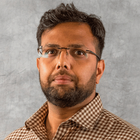
Sameep Mehta is IBM Distinguished Engineer at IBM Research AI. He leads the global Data Strategy for AI. His research interests include Innovations in Data Lifecycle, Trusted AI & Meta Data Management. He is a regular speaker at various technical fo…

Ryan Merkley is CEO at Creative Commons, a global non-profit with chapters in over 85 countries. CC licenses are the global standard for sharing, with over 1.4 billion licensed works available online on nearly every major content platform. Prior to …

Political scientist turned coder, Lorena Mesa is a data engineer on GitHub's software intelligence systems team, Director on the Python Software Foundation, and PyLadies Chicago co-organizer. Lorena's time at Obama for America and her subsequent gra…
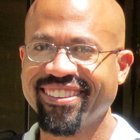
James Mickens is an associate professor of computer science at Harvard University. His research focuses on the performance, security, and robustness of large-scale distributed web services. Mickens received a B.S. degree in computer science from the…

Dr. Shivangi Narayan is an independent researcher based in Noida (NCR). She is currently affiliated with the Algorithmic Governmentality and Cultures of Policing (AGOPOL) project funded by the Norwegian Research Council and Oslo Metropolitan Univers…

Mbithe Nzomo is a Computer Science PhD candidate at the University of Cape Town, researching the integration of data-based (e.g. machine learning) and knowledge-based (e.g. ontologies) Artificial Intelligence techniques for sensor-based personal hea…

Ananth Padmanabhan, the Dean at Vinayak Mission Law School. Renowned for his expertise in intellectual property rights and technology policy, Ananth also serves as a non-resident senior fellow at the Institute for South Asian Studies, NUS. He has au…
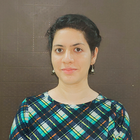
Parul Pandey has a background in Electrical Engineering and currently works as a Principal Data Scientist at H2O.ai. Prior to this, she was working as a Machine Learning Engineer at Weights & Biases. Parul is one of the co-authors of the Machine Lea…

Evan M. Peck is an Assistant Professor of Computer Science at Bucknell University. His research sits at the intersection of Human-Computer Interaction and Information Visualization, and broadly explores the design of technology that empowers everyda…
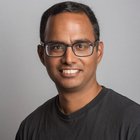
Dr Atri Rudra is the Katherine Johnson Chair in Artificial Intelligence and a Professor of Computer Science and Engineering at the University at Buffalo, SUNY. Atri received his Ph.D. from the University of Washington in 2007. From 2000 to 2002, he …

Lucy Sanders is CEO and Co-founder of the National Center for Women & Information Technology (NCWIT). She has an extensive industry background, having worked in R&D and executive positions at AT&T Bell Labs, Lucent Bell Labs, and Avaya Labs. Lucy wa…
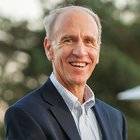
Bobby Schnabel is Professor of Computer Science at the University of Colorado Boulder, external chair of computer science, College of Engineering and Applied Science faculty director for entrepreneurship, and campus thought-leader on computing.From …

Dr. Manan Suri leads the NVM and Neuromorphic Hardware Research group at IIT-Delhi. His research interests include Semiconductor Non-Volatile Memory (NVM) Technology and its Advanced Applications (Neuromorphic, AI, Security, Computing, Sensing). Dr.…
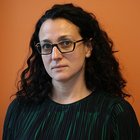
Julia Stoyanovich is an Assistant Professor of Computer Science at New York University, with a joint appointment at the Tandon School of Engineering and the Center for Data Science. She is a recipient of an NSF CAREER award and of an NSF/CRA CI Fell…

Dr Tiffany D. Thomas serves as Program Coordinator and Assistant Professor of Community Development at Prairie View A&M, the only HBCU and institution with a graduate community development academic program in Texas. She teaches introduction to commu…
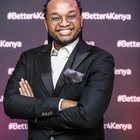
Mariga Thoithi is a Public Policy, Innovation, Communications and Campaigns professional from Nairobi, Kenya. Mariga’s work over the past 10 years' has been across 8 countries and 4 regions in various positions across East, Southern and West Africa …

Brenda Darden Wilkerson is an advocate for access, opportunity, and social justice for underrepresented communities in technology. She currently serves as the President and CEO of AnitaB.org, an organization working to shape public opinion about iss…

Yonatan Zunger is Distinguished Engineer and DPO at Humu. Prior to this, he spent 14 years at Google, where he headed teams ranging from high-capacity search and planet-scale storage, to the company's social efforts, to technical data governance and…
